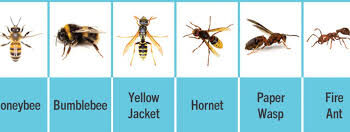Beyond the Garden Gate: Navigating the Unexpected Encounter of a Departed Vulpine Visitor
Introduction
Setting the Scene: A Surreal Encounter in your Garden
Imagine a tranquil afternoon in your garden, where vibrant flowers dance delicately in the breeze, and the lush greenery offers sanctuary from the chaos of the outside world. Birds serenade you with their melodious songs, and a sense of calm envelops you as you sip on a cup of tea.
However, amidst this idyllic setting, a sudden disruption shatters the tranquility: an unexpected visitor lies motionless on the ground—an elegant creature frozen in eternal repose—a dead fox. This sight can be quite jarring and unsettling for any garden enthusiast or homeowner.
A creature that once trotted stealthily through forests and fields now finds itself on display amidst your carefully cultivated sanctuary. The juxtaposition is both macabre and thought-provoking-a reminder that life’s fragility can invade even our most cherished spaces.
The Importance of Handling Dead Animals Responsibly
While encountering deceased wildlife in our gardens may evoke various emotions—surprise, curiosity, or even fear—it is paramount that we approach such situations with utmost caution and respect. Not only do we have an ethical responsibility to treat all creatures with dignity, but there are practical reasons behind handling dead animals responsibly. Firstly, it is crucial for our safety.
Dead animals can carry diseases or parasites that pose potential health risks to humans and other animals. By adopting safe practices when dealing with deceased wildlife, we mitigate these risks and protect ourselves from potential harm.
Secondly, respectful handling ensures that wildlife ecosystems remain intact. Foxes play an essential role in maintaining ecological balance by controlling populations of pests such as rodents.
Proper disposal ensures minimal disruption to this delicate interplay between species while preventing disease transmission within animal communities. Respectful handling sets a positive example for future generations by fostering empathy towards nature’s cycles of life and death.
Teaching children the importance of treating dead animals with reverence and care instills in them a deeper appreciation for the natural world and its intricate web of existence. In the following sections, we will explore how to safely handle dead foxes in your garden, considering both our own well-being and that of these fascinating creatures that tiptoe into our lives unexpectedly.
Understanding the Situation
A Mysterious Occurrence: Why Are There Dead Foxes in Gardens?
In the tranquility of our gardens, stumbling upon a dead fox can be an unsettling experience. However, it is essential to understand the potential reasons behind such encounters.
Foxes, like any other creatures, can succumb to the circle of life and face natural causes leading to their demise. One reason could be old age; just as humans grow older and eventually pass away, foxes also have a finite lifespan.
Illness is another factor contributing to their mortality. Foxes are susceptible to various diseases and infections that can weaken their immune system and ultimately lead to their demise.
Accidents are an unfortunate reality for both humans and animals alike. Foxes may occasionally fall victim to vehicular accidents or other hazardous incidents in urban or suburban areas where they encounter roads or other human-made dangers.
As these agile creatures navigate through unfamiliar territories seeking food or shelter, they may encounter vehicles traveling at high speeds, leaving them vulnerable to collisions. Nature’s harsh truth reveals that even predators have predators of their own.
In some instances, a deceased fox discovered in your garden might have fallen prey to larger predators within its ecosystem. While foxes are skilled hunters themselves, there are animals higher up in the food chain that pose a threat to these cunning creatures.
Predators such as coyotes, wolves, dogs, or even birds of prey may see a fox as a potential meal. Understanding these common reasons for finding deceased foxes in gardens allows us to approach such situations with empathy and knowledge instead of immediate alarm or distress.
The Circle Continues: Natural Causes of Fox Mortality
Just like any animal species on this planet, fox populations face mortality due to natural causes beyond our control. Old age becomes inevitable for every living creature fortunate enough to experience it—including foxes. As these creatures age, their bodies weaken, and the accumulation of wear and tear gradually takes its toll, eventually leading to their passing.
Moreover, foxes are susceptible to various illnesses and diseases that can significantly impact their health. From viral infections such as rabies or distemper to parasites like mange mites that cause extreme discomfort and debilitation, these ailments can weaken a fox’s immune system, making them more vulnerable to other threats in their environment.
Sadly, some of these conditions can prove fatal for the fox. Furthermore, fox reproduction plays a role in mortality rates as well.
The mating season brings intense competition among male foxes vying for female attention. This territorial aggression can lead to fights between males, resulting in injuries that may prove fatal over time if left untreated or if secondary infections occur.
An Unfortunate Intersection: Accidents Involving Foxes
While humans strive to coexist with wildlife peacefully, sometimes tragic accidents occur due to our expanding urban areas encroaching upon natural habitats. Our gardens serve as small pockets of greenery amidst concrete jungles where both flora and fauna seek solace.
Unfortunately, this juxtaposition sometimes leads to unexpected encounters between vehicles and animals like foxes. As nocturnal creatures with excellent adaptability skills, foxes explore their surroundings during nighttime hours when road traffic is at its peak.
This increases the probability of unfortunate collisions between these nimble creatures and fast-moving vehicles on dark roads. The outcome is often fatal for the unsuspecting fox caught in the path of a car.
Accidents involving machinery or other human-made hazards also pose a threat to these curious creatures when they venture too close for comfort. Construction sites or areas with exposed wires may inadvertently become traps for unsuspecting animals such as foxes who come across them while exploring new territories.
Understanding the reasons behind finding dead foxes in gardens provides us with insight into nature’s workings and the potential risks these creatures face. Recognizing natural causes of mortality, the unfortunate occurrence of accidents, and the reality of predation enables us to approach these situations with empathy and take appropriate measures to ensure safety and respect for both wildlife and ourselves.
Ensuring Safety First
Assessing potential risks:
Prioritizing safety when encountering a deceased fox in your garden is paramount. Begin by carefully assessing the surroundings for any potential hazards that may pose a danger to you or others.
Take a moment to scan the area, paying particular attention to broken glass, sharp objects, or any other obstructions that could cause harm. It’s important to approach cautiously and ensure your own well-being throughout the process.
Approach carefully:
As you prepare to handle the deceased fox, it is crucial to proceed with utmost care. Before getting close to the carcass, take a step back and observe from a distance. Note any signs of trauma or indication of disease that may pose health risks.
While it’s natural to be curious about what caused its passing, it is essential not to disturb the scene until proper precautions are taken. When approaching closer, maintain awareness of your surroundings and proceed slowly.
Keep an eye out for any potential dangers that might have been overlooked from afar. Unseen shards of glass or sharp objects can cause unintended injury if not given due diligence.
Wearing protective gear:
To minimize direct contact and reduce associated health risks, wearing appropriate protective gear is highly advisable when handling a dead fox in your garden. Begin by equipping yourself with sturdy disposable gloves made from latex or nitrile material; these will act as an effective barrier between your skin and any potentially harmful substances present on the carcass. In addition to gloves, consider using tools such as tongs or shovels while interacting with the deceased animal.
These instruments allow for safe distance handling while minimizing direct contact with the fox’s remains. By utilizing such tools effectively, you can mitigate health hazards linked with exposure to potential pathogens or parasites.
Keeping pets away:
If you have pets, it is crucial to keep them away from the area until the situation is resolved. The presence of a deceased fox can pique their curiosity and lead to unintended consequences. Not only might they inadvertently disturb the scene, but there could also be potential health risks associated with their exposure to the carcass or any parasites it may harbor.
To ensure the safety of your beloved animals, confine them indoors, or safely secure them in another part of your property. This precautionary measure will also allow you to concentrate on handling the situation effectively without any added distractions.
Responsible Disposal Options
Contacting local authorities:
When faced with the presence of a deceased fox in your garden, it is essential to reach out to the appropriate local authorities for proper disposal. Many municipalities have designated departments responsible for handling deceased animals and can offer guidance on safe and respectful procedures. Contacting these authorities not only ensures compliance with local regulations but also helps prevent any potential health risks associated with improper disposal.
Animal control services:
One of the primary avenues to explore when seeking assistance with disposing of a dead fox is contacting animal control services. These dedicated departments possess the expertise and resources necessary to handle deceased animals safely and responsibly. By alerting them to the situation, you contribute to maintaining public health and hygiene standards while ensuring that wildlife is treated with respect even after death.
Wildlife rescue organizations:
In addition to animal control services, some regions have specific wildlife rescue organizations that specialize in dealing with deceased animals. These organizations are often equipped to handle various types of wildlife incidents and may provide alternative options for disposal or even offer advice on potential causes of death. Engaging with these organizations not only assists in removing the dead fox from your garden but also contributes to valuable data collection efforts that aid in monitoring wildlife populations and identifying potential threats or diseases.
Conclusion:
Encountering a dead fox in your garden can be distressing, but handling this unexpected visitor responsibly is crucial for both safety and environmental considerations. By reaching out to local authorities such as animal control services or wildlife rescue organizations, you ensure that proper disposal methods are followed, adhering to regulations while maintaining public health standards.
This collective effort not only safeguards our communities but also allows for valuable insights into wildlife populations within our surroundings. Remember, even in moments like these, we have a chance to show compassion towards nature’s creatures and make a positive impact on the world around us.













